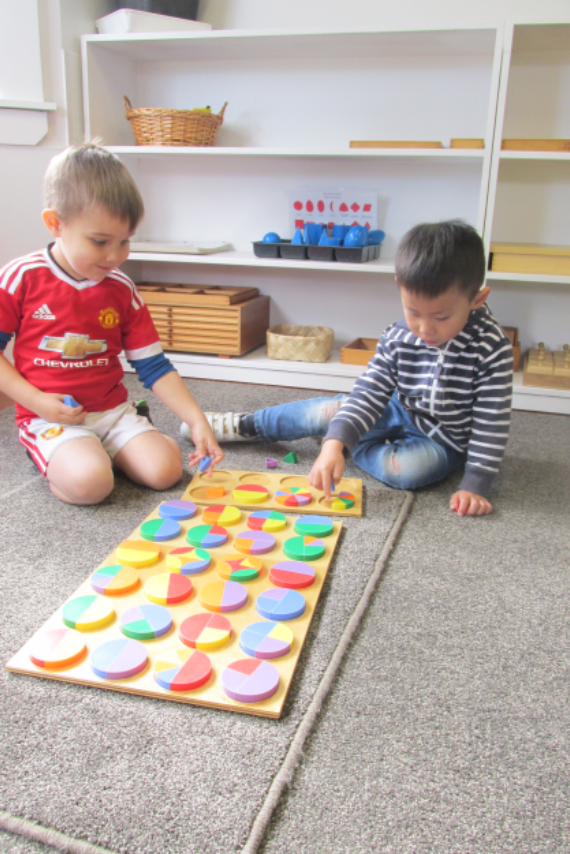Kids' Kampus
 Children don’t always get along. Whether it’s with their siblings or classmates, from time to time, we can expect clashes and tears. The natural response is to ask one (or both) of the kids to say sorry. We usually accept the apology even when it’s mumbled or said with a furrowed brow, and the children are free to run off and play together once more. But forcing children to apologise isn’t always the best strategy. Forced apologies may not be real, and spending more time hashing out the problem with the child is usually better in both the short-term and the long-term. The problem with forced apologies The problem with forced apologies is exactly that - they’re forced, not genuine. Children may go through the motions of saying sorry to avoid getting into trouble or so they can carry on with playtime. That doesn’t mean they always feel sorry. In fact, they might not understand what they’ve done wrong to begin with. Plus, the person on the receiving end of the apology will be able to tell it’s not real. The process doesn’t do much to strengthen the children’s bond, nor does it teach them how to properly solve conflicts in future. How to encourage an honest apology Forced apologies don’t do much to address the real issue, they don’t help kids develop empathy, and they don’t cause them to feel genuinely remorseful. Most importantly, they won’t help them behave better in future. When you’re presented with upset children, try this process instead of resorting straight to the “say you’re sorry” line. 1. Be there for both children Whether they’ve had a toy stolen, been called something hurtful or been physically injured by another child, the first response should be to tend to the hurt child and make sure they’re okay. After that, it’s time to have a conversation with the child that “needs to apologise”. By telling them to say sorry immediately after the incident, they might feel more anger towards their sibling/friend/classmate/you. Instead, give them time to calm down and make sure they’re okay too. If they’re still feeling angry or upset after the conflict, they won’t want to apologise. If they do have to apologise straight away, it won’t be genuine. 2. Hold a constructive conversation Once you’re confident the child feels safe, you can talk to them about the events that just unfolded. Let them know you’re interested in hearing their side of the story (because as we know, there are always two sides to every story!) Ask open-ended questions to encourage them to explain what happened in their own words. Make them feel heard and understood. 3. Get them to consider the other perspective As you listen to their version of the story, avoid the urge to make a judgement about who was right or wrong. Now they’ve had the chance to air out their own frustrations, ask them to consider how the other child might have felt. This gives them the opportunity to recognise how their actions were hurtful. 4. Let them figure out how to say sorry Once they’ve gained an understanding of where they might have gone wrong, we can let children decide how they want to apologise. Ask questions like “What’s the right thing to do now?” and “How can you and [Name] play nicely again?” We want children to feel like you’re letting them take the reigns, not forcing them to take the blame. Try not to make them feel resentful or embarrassed here, just let them repair the relationship on their own terms. This could take the form of a verbal or written apology, a hug, a handshake or a drawing - let them be creative if they like! If they’re not sure how to say sorry, give them some ideas but let them decide how they’d best like to move forward. What are the long-term benefits of this process?If we consistently use this approach in place of the forced apology, we’re giving children more opportunities to look at things from another perspective and to really want to repair the bond. This is about letting children decide how to make things better, and sometimes, they may not want to apologise at all. That’s fine too. If they’re still angry (and feeling a little stubborn), continue to listen and understand. Over time, they’ll likely come around and choose to make things right. We’ve noticed that when children have the opportunity to own their mistakes, they’re able to develop more honest, meaningful relationships with their friends and family. This article was inspired by: https://parentingplace.nz/resources/sorry-bobby-should-we-force-kids-to-apologise
0 Comments
Leave a Reply. |
.Margie Blackwood, owner and Director of Kids' Kampus
April 2024
. |
|
Kids’ Kampus Childcare
50-52 Shackleton Road Mt Eden, Auckland 1024 New Zealand |
|






